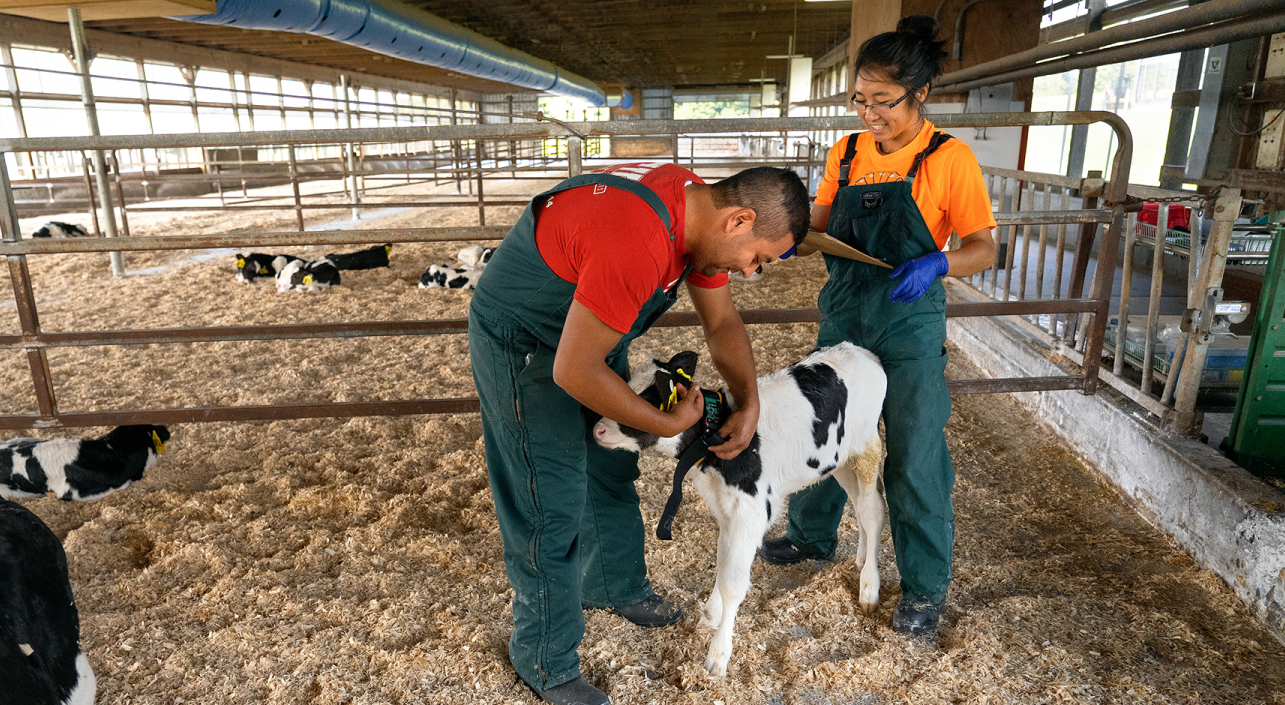Antibiotic Stewardship
American dairy farmers are committed to producing high-quality, safe and affordable milk and beef while protecting both animal and public health. Healthy animals are the foundation of a safe food supply, and disease prevention is central to their care. When illness or injury requires treatment, farmers and veterinarians work together to ensure antibiotics and other medications are used judiciously, under veterinary guidance and only when necessary. This careful approach not only prevents drug residues in milk and dairy beef but also helps preserve the effectiveness of antibiotics for both animals and people by combating antimicrobial resistance (AMR) on a global scale.
For more than 30 years, the U.S. dairy industry has prioritized education on the judicious use of antibiotics through the annual publication of its best practices manual. This manual serves as a key resource for farm managers, outlining approved antibiotics for dairy animals and supporting the development of on-farm protocols to prevent residues.
Participation in the National Dairy Farmers Assuring Responsible Management (FARM) Animal Care Program reinforces this commitment. Today, more than 99 percent of the U.S. milk supply comes from farms that follow FARM standards, demonstrating the industry’s unified approach to responsible antibiotic stewardship and animal care.

Our Position
NMPF supports the FARM Antibiotic Stewardship Program, as well as educational efforts that promote the responsible use of antimicrobials in animal agriculture. NMPF opposes all federal, state and local legislative and regulatory initiatives that undermine national uniformity and the best scientific available in governing the responsible use of antibiotics.
Key Points
- For more than 30 years, the U.S. dairy industry has focused educational efforts on the judicious use of antibiotics through the annual publication of a best practices manual. The FARM Drug Residue and Prevention Manual is the primary educational tool for dairy farm managers throughout the country on the judicious and responsible use of antibiotics, including avoidance of drug residues in milk and meat.
- FARM Animal Care requires farms to maintain a written Veterinarian-Client-Patient Relationship and an annually reviewed herd health plan with their Veterinarian of Record. For antibiotic use, all medically important antimicrobials must be used under veterinary oversight, with strict recordkeeping and protocols in place to prevent drug residues in milk or meat.
- In 2024, only one retail-ready milk product tested positive for traces of antibiotics. All milk is screened for antibiotics, and any milk load or product that tests positive for a drug residue is discarded and never sold.
- Only 1 out of 17,080 milk tankers tested positive for antibiotic residues last year, according to the 2024 National Milk Drug Residue Database report. This data demonstrates the continued long term national pattern of industry improvements in milk quality practices.





